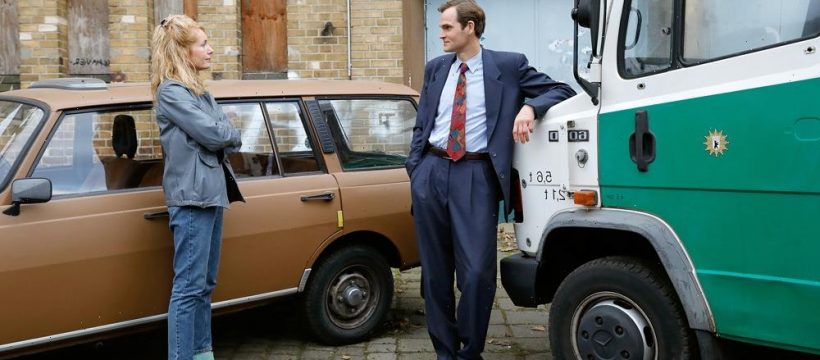Crime show “Divided We Stand,” which will premiere in Germany on the public broadcaster ARD on Feb. 22 with the title “ZERV,” screened this week at the European Film Market in the Berlinale Series Market Selects section. World sales are being handled by Beta Film.
The show, based on true events, follows a group of police officers from West Germany who are sent to Berlin to form a special investigations unit, called ZERV, which aims to root out crimes committed in the German Democratic Republic (GDR) during the Communist era. However, as the officers dig deeper into the crimes in the East they start to find that many of them had originated in the West.
Speaking to Variety, exec producer Gabriela Sperl says the clash of cultures, values and ideologies was not only interesting, but also held the promise of some darkly comic moments as the West Germans try to “teach the East Germans what democracy means.”
Sperl sees this show as picking up from where her 2019 drama “Preis der Freiheit” – which portrays the hypocrisies and corruption evident during last days of the GDR – left off.
After 1989, the East Germans “gave up an identity that they had,” Sperl says, and were told “everything they had been believing in for 40 years was totally wrong.” Director Dustin Loose adds that compared with a show like “The Bridge,” where two officers from “two different societies come together,” in his show two officers come from two parts of the same country, but one part is being assimilated into the other.
The two groups of police officers – the ones from the West and the ones in the East – are told to work together, but “they do not like each other,” Loose says. This clumsy attempt at unification, as seen in a police station, “with all the fears and desires, and all the hopes they have in that, and all the prejudices they carry with them,” leads to some pretty absurd situations, he says.

Through these moments of bitter-sweet comedy, you get to the truth, Sperl says. “Good comedies are also tragic,” she says. You probe the depth of a character and “suddenly the character resonates with your own feelings and your own reality.”
“The jokes reflect the feelings that people had,” she says, “and they mirror the prejudices that are still there.” Part of the appeal of the post-unification period was that many of the stories of that time have not been told, Sperl says, and yet they have a resonance today, when East Germans still feel they are looked down on as the backward part of the country, and their regions are neglected, and this also coincides with the rise of the far right in Eastern Germany. “They feel left behind,” she says.
Sperl sees similar cultural divisions in the U.S. between Trump supporters and anti-Trump folk, and in the U.K. between Brexiters and their opponents.
One of the West German cops in the show, Peter Simon (played by Fabian Hinrichs), is instructed to work with an East German detective, Karo Schubert (played by Nadja Uhl), in order to solve a murder that is linked to his investigations. As the case progresses Peter “loses his preconceived notions of what these people on the other side of the Iron Curtain are like,” Sperl says. “And he changes, he opens up, and he’s no longer the sort of bureaucratic Peter that he was, and he becomes a human.”

One important sub-plot in the series is the story of Karo’s daughter, Silvie (played by Vanessa Loibl) and her friend Bianca (played by Caroline Cousin), who we discover was abused in a children’s home in the GDR. This allows the daughter to ask her mother: “Where were you when this was going on?,” a question that many Germans wanted to put to their parents during a troubled century.
The show’s writers are Jens Köster, Kim Zimmermann, Sperl and Michael Klette, and its stars are Uhl, Hinrichs, Max Hubacher, Thorsten Merten, Rainer Bock and Fritzi Haberlandt. Alongside Sperl, the other exec producers are Quirin Berg, Max Wiedemann and Miriam Klein. It is produced by Wiedemann & Berg Television, A Little Film Production and Gabriela Sperl Produktion, in collaboration with Wilma Film for ARD, and MDR and ARD Degeto for Das Erste.
Source: Read Full Article
